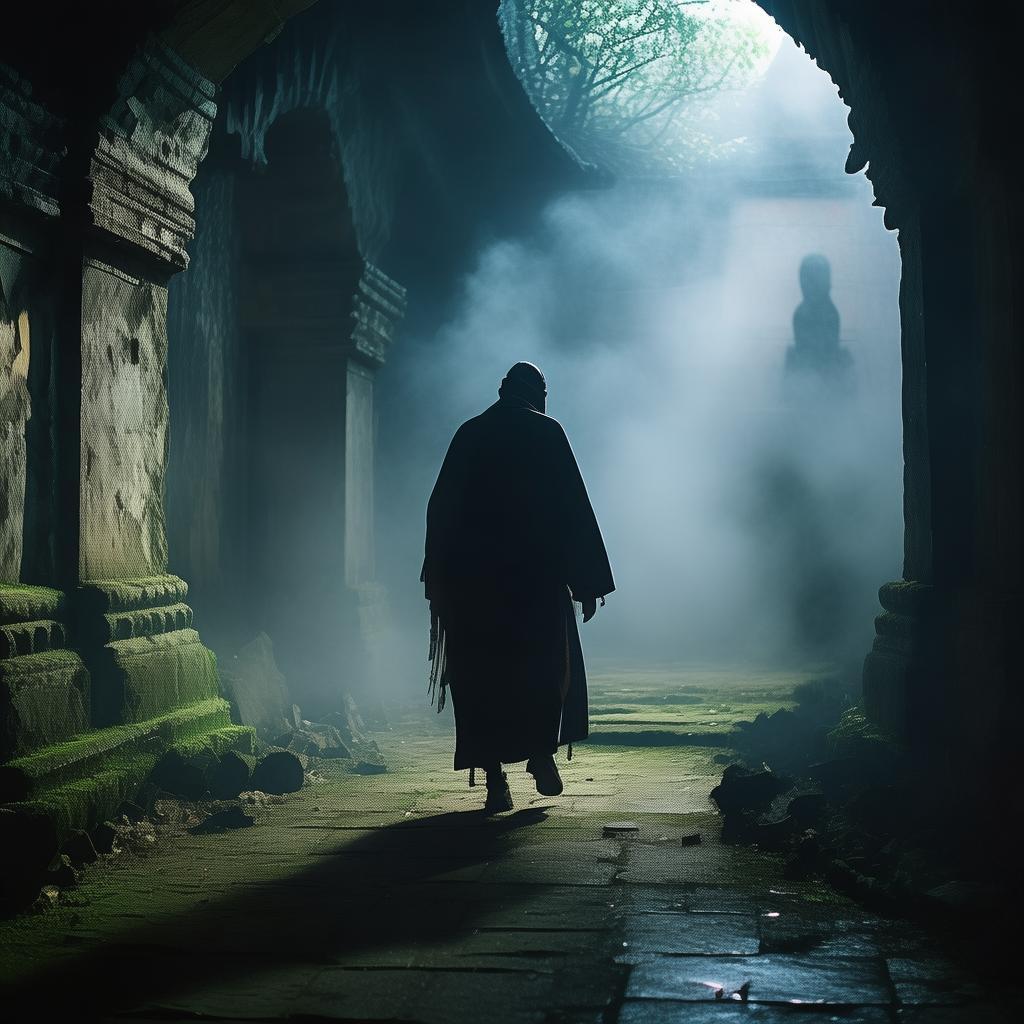The Phantom's Lament: Echoes of the Chengdu Condo
In the bustling city of Chengdu, a legend had taken root like the ancient bamboo trees that lined the streets. The legend spoke of a condominium, once a beacon of luxury, now shrouded in mystery and dread. It was said that the building was haunted by the spirits of those who had met untimely ends within its walls, their voices trapped in the very bricks and beams.
The condominium, known colloquially as "The Spectral Symphony," had been abandoned for years, its once gleaming facade now marred by peeling paint and overgrown vines. But for the intrepid, the allure was irresistible. They whispered tales of ghostly apparitions, eerie sounds, and the haunting melodies that seemed to emanate from the very air.
Among these intrepid souls was a young musician named Liang. His life had been a series of dissonant notes, until he found solace in the music he created. He had moved to Chengdu in search of inspiration, drawn to the city's rich cultural tapestry and the promise of a fresh start.
Liang's new apartment was on the top floor, a corner unit with panoramic views of the city. The building was an old one, and the walls seemed to whisper secrets to him as he unpacked his belongings. He noticed a peculiar sound, a haunting melody that seemed to come from nowhere and everywhere at once. It was unlike anything he had ever heard, a mix of sorrow and longing that seemed to resonate with his own soul.
One evening, as he sat on his balcony, the melody grew louder, more insistent. He followed it, stepping cautiously into the elevator that had seen better days. The doors opened to reveal a dimly lit hallway, the walls adorned with faded portraits of smiling faces. Liang's heart raced as he made his way down the corridor, his footsteps echoing against the silence.
At the end of the hall, he found a small, unmarked door. He pushed it open and stepped into a room that seemed to be out of place. The walls were adorned with ornate tapestries, and a grand piano stood in the center. The melody was coming from the piano, but no one was there to play it.
Liang approached the piano, his fingers tracing the keys. The melody filled his head, and he felt a strange connection to it. He played a few notes, and the sound was pure, unadulterated beauty. The room seemed to come alive, the portraits smiling warmly, the air tinged with the scent of old roses.
That night, Liang's dreams were filled with visions of a young woman, her eyes filled with sorrow and longing. She played the piano with a grace that seemed to transcend time, her fingers dancing across the keys with a fluidity that defied explanation. Liang awoke with a start, the melody still echoing in his mind.
Days turned into weeks, and Liang found himself drawn to the piano every night. He began to understand the woman's story, a tale of love and loss that had ended in tragedy. She had been a performer, her voice a gift that had captivated audiences. But a jealous rival had plotted her downfall, and in a fit of rage, had thrown her from the building's top floor.
Liang's own life began to mirror the woman's. He found himself falling for a woman who seemed to be just out of reach, her laughter a haunting echo of the woman in his dreams. He felt a growing sense of urgency, a need to find the woman and tell her his story, to share the music that had become his own.
One night, as he played the piano, the woman appeared before him. Her eyes met his, and he felt a surge of emotion. She reached out and touched his hand, her touch warm and comforting. "I have been waiting for you," she whispered.
Liang's heart raced as he realized that the woman was not just a spirit, but a guide, a connection to the past that could help him find his own path. He began to compose a piece that would combine the melodies of the past and the present, a symphony of hope and healing.
As the days passed, Liang's music grew more powerful, more resonant. The spirits of the condominium began to respond, their voices blending with his own. The once-empty halls now echoed with the sound of life, the melodies of the past and the present intertwining in a beautiful harmony.

One evening, as the final notes of his symphony filled the air, the woman appeared once more. "You have done it," she said, her eyes shining with pride. "You have brought us peace."
Liang looked around, and the condominium was no longer the place of dread it had once been. The spirits had been released, their voices now part of the music that would live on forever. He smiled, knowing that he had found his purpose, that he had become a part of something greater than himself.
The Phantom's Lament had become his own, a testament to the power of music and the enduring bond between the living and the departed. And in the heart of Chengdu, the condominium that had once been a place of fear was now a sanctuary of hope and healing.
✨ Original Statement ✨
All articles published on this website (including but not limited to text, images, videos, and other content) are original or authorized for reposting and are protected by relevant laws. Without the explicit written permission of this website, no individual or organization may copy, modify, repost, or use the content for commercial purposes.
If you need to quote or cooperate, please contact this site for authorization. We reserve the right to pursue legal responsibility for any unauthorized use.
Hereby declared.









